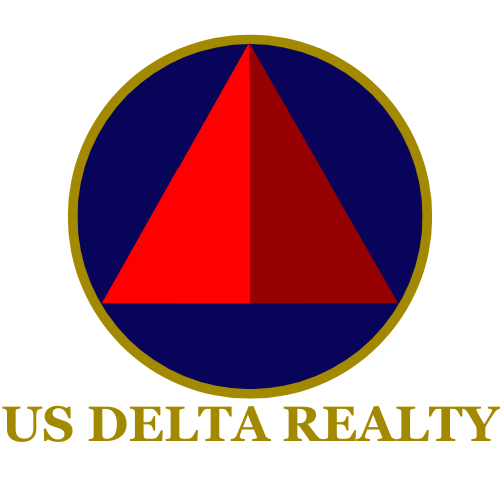Rental Properties vs. REITs: Which is the Better Investment?
Image via FreePik
By Sarah M.
Investing in real estate is one of the most popular ways to build wealth, but not all real estate investments are created equal. Two of the most common options are investing in rental properties and investing in Real Estate Investment Trusts (REITs). While both provide opportunities for income and appreciation, they come with distinct risks, responsibilities, and returns. This article explores the pros and cons of each to help you determine which is the better investment for your financial goals.
What Are Rental Properties?
Rental properties involve purchasing physical real estate—such as single-family homes, apartments, or commercial spaces—with the intention of renting them out to tenants. This investment strategy requires significant capital, property management skills, and ongoing maintenance. Investors earn money through rental income and property appreciation.
One of the biggest advantages of rental properties is the potential for consistent passive income. Property values tend to increase over time, providing an opportunity for long-term wealth accumulation. Additionally, rental properties offer tax advantages, including deductions on mortgage interest, property taxes, and maintenance expenses.
However, managing rental properties can be time-consuming and stressful. Landlords must deal with tenant issues, maintenance problems, and potential vacancies. Furthermore, property values can fluctuate depending on the economy, and unexpected expenses can cut into profits. It is essential to consider these factors before investing in rental properties.
What Are REITs?
Real Estate Investment Trusts (REITs) are publicly traded companies that own and manage income-producing real estate properties. Investors can buy shares in a REIT, similar to stocks, and earn returns through dividends and share price appreciation. REITs invest in a variety of property types, including commercial real estate, residential buildings, and industrial properties.
One major advantage of REITs is their accessibility. Unlike rental properties, which require significant capital, investors can start with a relatively small amount of money. REITs also provide liquidity, as they can be bought and sold on stock exchanges, making them a more flexible investment option.
Additionally, REITs offer diversification, reducing risk compared to owning a single rental property. Professional management handles property operations, so investors do not need to worry about tenant issues or maintenance. However, REITs are subject to market volatility, and their performance is influenced by interest rates and economic conditions.
Cash Flow Comparison: Rental Properties vs. REITs
Cash flow is a crucial factor in any investment decision. Rental properties generate income through monthly rent payments. If managed well, they can provide a steady stream of passive income. However, landlords must account for expenses such as mortgage payments, property taxes, insurance, and maintenance costs, including essential services like Air Duct Cleaning Utah to ensure tenant satisfaction and property upkeep.
REITs, on the other hand, generate income through dividend payouts. Many REITs pay high dividends compared to traditional stocks, making them attractive for income-seeking investors. However, dividend yields can vary based on market conditions and REIT performance.
While rental properties can offer higher long-term returns, they require more hands-on management and higher initial investment. REITs, although subject to market fluctuations, provide a more passive income stream with less effort required from investors.
Risk and Market Volatility
Investing in rental properties carries risks such as vacancies, tenant issues, property damage, and market downturns. A downturn in the real estate market can lower property values and rental income, impacting overall returns. Additionally, unforeseen expenses can arise, affecting cash flow and profitability.
REITs, on the other hand, are exposed to market volatility, much like stocks. Economic downturns, changes in interest rates, and shifts in real estate demand can impact REIT share prices. However, because REITs own multiple properties, they offer diversification that individual rental properties cannot.
Investors must assess their risk tolerance before choosing between rental properties and REITs. Those comfortable with property management and market fluctuations may find rental properties appealing, while those preferring a hands-off investment may opt for REITs.
Liquidity and Accessibility
Liquidity is a significant factor when comparing rental properties and REITs. Rental properties are illiquid assets, meaning they cannot be easily sold or converted into cash. Selling a property can take months, and market conditions play a crucial role in determining the selling price.
In contrast, REITs offer high liquidity, as they are traded on stock exchanges. Investors can buy and sell shares quickly, providing greater flexibility in managing their investment portfolio. This makes REITs an attractive option for those who may need quick access to their funds.
Additionally, rental properties require substantial capital to purchase and maintain, while REITs allow investors to participate in real estate markets with much lower initial investment requirements.
Tax Implications
Both rental properties and REITs have tax benefits, but they differ in structure. Rental property owners can deduct mortgage interest, property taxes, depreciation, and maintenance expenses. These deductions can significantly reduce taxable income.
REITs, on the other hand, must distribute at least 90% of their taxable income to shareholders as dividends, which are often taxed as ordinary income. However, some REITs qualify for special tax treatment, such as the 20% deduction on qualified business income under the IRS tax code.
Ultimately, tax benefits depend on individual financial situations. Consulting a tax professional can help investors determine the best option based on their tax bracket and investment goals.
Final Verdict: Which is the Better Investment?
The decision between rental properties and REITs depends on an investor’s financial goals, risk tolerance, and management preferences. Rental properties can provide significant long-term returns and passive income but require active management and substantial capital. REITs, on the other hand, offer passive income, diversification, and liquidity, making them a convenient alternative for hands-off investors.
For those looking for direct ownership, control over assets, and long-term appreciation, rental properties may be the better choice. However, for investors seeking a hassle-free, diversified, and liquid investment, REITs provide an excellent alternative.











